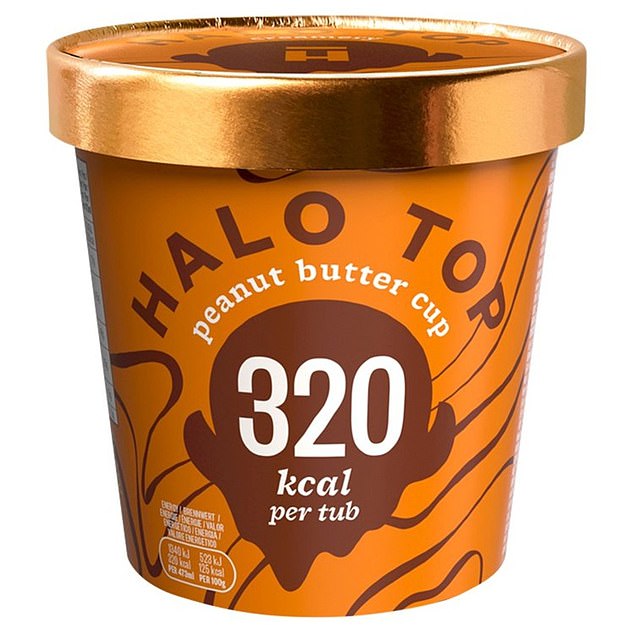[ad_1]
An artificial sweetener added to ‘healthy’ foods—including low-calorie ice cream and protein bars—could increase the risk of stroke and brain damage, research suggests.
Erythritol, which is also commonly found in flavoured waters and popular diet products like Halo Top ice cream—has already been linked to digestive issues and heart problems.
Now, scientists at the University of Colorado say even small amounts of the substance may promote blood clotting and inflammation, potentially raising the risk of cardiovascular events such as heart attacks and strokes.
Experts warned the findings could help explain the sharp rise in premature deaths from cardiovascular disease seen over the past decade.
The study, led by vascular health specialist Professor Christopher DeSouza, involved exposing human brain cells to erythritol at levels equivalent to those found in a standard sugar-free drink such as Vitaminwater and Monster.
Within three hours, the cells showed clear signs of inflammation and clotting. They also produced significantly less nitric oxide—a molecule that helps relax blood vessels—and more proteins that cause blood vessels to constrict.
‘Big picture, if your vessels are more constricted and your ability to break down blood clots is lowered, your risk of stroke goes up,’ said study co-author Auburn Berry.
‘Our study adds to the growing body of evidence suggesting that so-called “safe” non-nutritive sweeteners may come with hidden health risks,’ said Prof DeSouza.

Halo Top use stevia and erythritol in addition to organic cane sugar to make their ice cream ‘delightfully sweet without all the calories of regular ice cream’

Vitaminwater has become increasingly popular as an easy way to get more vitamins and minerals but a lot of these ‘zero’ products contain Erythritol which is listed as a ‘natural’ sweetener
‘Not only that, it demonstrates how erythritol in particular may raise stroke risk.’
The erythritol-treated cells also produced more free radicals—unstable molecules which are known to cause damage to the DNA inside cells if they build up.
This in turn can cause oxidative stress which has been linked with heart disease, dementia and even cancer.
A previous study involving more than 4,000 people found that those with the highest levels of erythritol in their blood were significantly more likely to suffer a heart attack or stroke within three years.
While the researchers only tested brain cells in a lab and used a dose equivalent to a single serving of erythritol, Professor DeSouza warned that people who consume multiple servings a day—via diet drinks, protein bars or low-calorie desserts—could face a higher risk.
He urged the public to be mindful of their intake, warning: ‘These sweeteners come with a plethora of negative health consequences.’
However, the team acknowledged further research is needed to confirm whether erythritol has similar effects in the human body.
Erythritol was first approved by the US Food and Drug Administration (FDA) in 2001.

Commonly-used sweeteners including aspartame, added to Diet Coke and products like Extra chewing gum and Muller Light yoghurts, have long been linked to certain cancers and heart issues
It is typically made by fermenting corn and is found in hundreds of products as a low-calorie sugar substitute.
It mimics the taste of sugar but isn’t metabolised in the same way—meaning it contains virtually no calories.
For that reason, it has become a popular choice among dieters and people with diabetes trying to control blood sugar levels.
Erythritol is also naturally produced in small amounts by the body.
Experts say that consuming it in high levels—through both processed products and natural sources like fruit and vegetables—could potentially push levels into the danger zone.
Concerns about artificial sweeteners, widely added to everything from fizzy drinks to ‘healthy’ snacks, have been building for years amid mounting evidence they may not be as harmless as once believed.
But critics highlight such studies are only observational, meaning they are unable to prove artificial sweeteners are the culprit and cannot rule out other external factors being to blame.
[ad_2]
This article was originally published by a www.dailymail.co.uk . Read the Original article here. .

